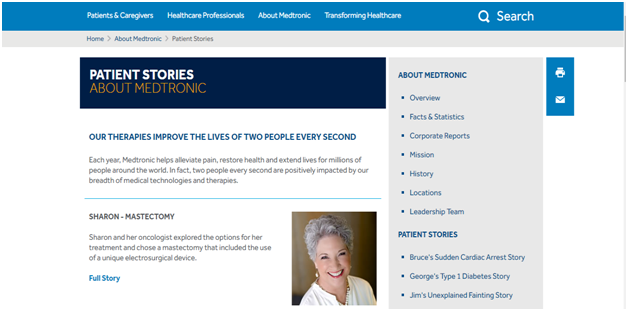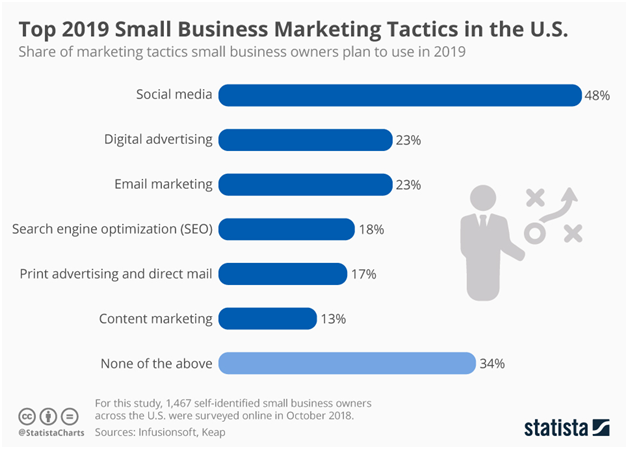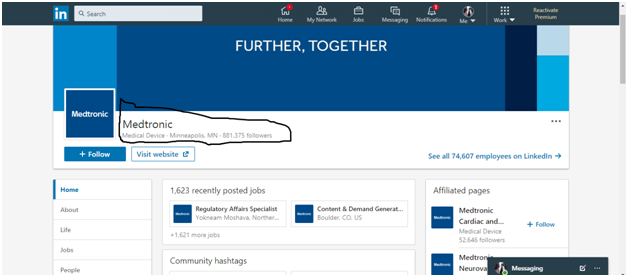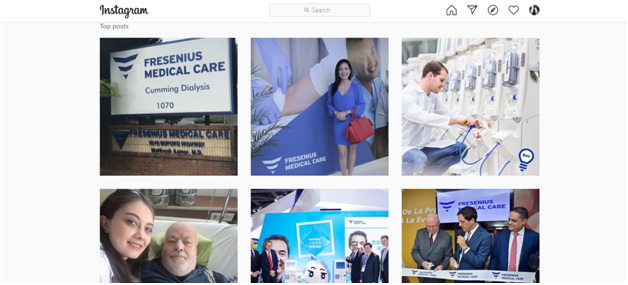Christopher Oseh, freelance medical content writer on Kolabtree, lists quick proven tips to help you market your medical device easily.
Medical device marketing is often a herculean task for small and medium sized medical devices companies. Marketing is the process of finding and identifying your ideal customers and is critical to the success of any business. Proper marketing involves several activities which are targeted to attract the clients’ attention, incite their interest in your product and to take actions leading to product sales.
With the plethora of information online about marketing, the subject can be quite confusing.
Do you know how to decide on the medical device marketing strategy suitable for your company? Are you overwhelmed by the different marketing options and budget required to run a successful medical device marketing campaign? How do you go about running brand campaigns to position your product to the ideal audience?
In this post, you will learn medical device marketing strategies and how to decide which strategy to adopt based on your goals and marketing budget.
1. Decide and target your ideal customer
The success of any marketing campaign is hinged on defining your ideal customers and focusing all your resources on defined customers’ traits. This process requires brainstorming certain features your ideal client must have so that your medical device marketing is aimed at these characteristics. This saves lots of time and efforts that would have been used to reach a wide target audience in the medical device market.
Create fictional characteristics of your ideal client by answering the following questions:
- Who is my customer? Specify the career, interests, geographical location, income level, gender and communication preferences (email or phone number).
- What are my customer’s primary and secondary career goals?
- What are the challenges and complaints your customers are having at work?
- How will your medical device solve the problems your customers pass through?
- Finally, create a persona of the type of customer not to target your marketing campaigns to.
Your marketing team will use these answers as a strategic guide to draft a marketing plan for your medical device marketing.
2. Outsource content creation
Content is simply a piece of information used to educate a targeted audience for the purpose of building trust and credibility. Quality content can help you create touchpoints that communicate the value of your product to your target audience. Elaborating on the pain points of your potential audience, and weaving a narrative around how your product can address these concerns, will help you achieve the dual objective of position your product to the right audience and generate interest that subsequently leads to revenue streams.
Content can be in form of blog posts, articles, white paper, case studies and infographics. A good number of clients for medical device companies are health professionals that expect professionalism when communicating with them. Thus, there is a need to use only skilled and experienced medical copywriters and content marketers from credible freelance platforms. For instance, a small and medium sized medical device company with a cardiac medical device should hire a technical writer with research experience in cardiology.
Similarly, a medical writer with expertise in neurology would write compelling content for a company with a neurological medical device. This is because a specialized medical writer communicates with medical terminologies that engage and capture the interests of clients that are specialists.
According to a survey by Content Marketing Institute, it was discovered that 50% of businesses prefer to outsource their content creation process. Why?
This is because outsourcing content creation is pivotal to the success of other aspects of your medical device marketing strategy and frees up time to focus on higher value tasks. B2B companies can save the money needed to pay the wages of internal content creators and get a higher return on investment by hiring freelance medical writers on demand only.
Here are content types to outsource:
- Company web pages: When you’re setting up a company web page you need to have an expert who can confidently write about your product and company. The ideal candidate would have copywriting experience as well and some technical/scientific knowledge. This will help you persuade your prospects to take actions such as subscribing to your newsletters or buying your products.
- Blog page: A medical content writer is required to deliver quality information in a language that suits your ideal prospects. A medical device blog typically requires authors to have deep technical expertise or knowledge to demonstrate authority and provide reliable content.
- Press Releases: A technical writer is ideal for writing specific content concerning new products or announcements. Medical device companies often work with specialist PR agencies or qualified freelance experts to help them spread the word in the market about their product.
- White papers or specific industry related information for clients who are health professionals. White papers are authored by experts and require sound technical knowledge and careful editing and fact-checking before it is published.
- Email copy: A medical copywriter is critical to writing e-mail copies that can convert into sales.
B2B organizations can easily hire technical and medical writers on freelance platforms like Kolabtree which has a large number of skilled and experienced content marketers.
Also read: Medical Device Consulting Services: Why Hire Freelancers
3. Set up a company website
An online presence of your company ensures that customers can find you through search engine channels and get any relevant information to learn more about your company and eventually make a buying a decision.
Your website content should contain branded information and pages that cater to the needs of your customers. Tell your brand story in a personalized way using the customer persona template you created. Communicate your business mission, values and benefits in a clear and concise manner using second person language and strong emotive words.
Your company website must have the following features to reduce the bounce rate: the rate at which prospective clients leave your website without navigating to other pages.
- Simple website design: The website layout should promote easy navigation through your webpages to enable your website visitors find relevant contents quickly.
- Search engine optimization: This involves targeting specific keywords and optimizing your webpages so you ideal clients can find you easily once your products are searched online. It is essential because it will drive free or organic traffic to your website. Also, your web pages must load fast.
- Organization of webpages: Organise and display essential pages so your clients can access them easily. The website of Medtronic, a popular medical device company shown below exemplifies this principle.

- Product page: Hire medical copywriters and medical SEO writers to write compelling product descriptions that connect with your prospective customer’s needs.
- Mobile-friendly website: Your website must be mobile responsive because most of your clients will access your website using their mobile phone.
- Sign up and subscription forms to collect the name and emails of your clients. This information will be used to drive your e-mail marketing campaigns.
4. Educational marketing
Educate potential customers first before selling to them because people do not like to be sold anything and they buy from only businesses they trust.
How do you build trust? Here’s where great branding takes precedence over conversion-oriented marketing. Educating your audience on what value your brand can offer them can help you nudge them slowly down the pipeline to eventually becoming a paying consumer.
Trust can be built by providing valuable information that solves the problems of your ideal client. Educational marketing can be done online by organizing webinars and sending free downloadable materials to help your potential clients. Google’s algorithm also rewards expert-written, high-authority content especially on healthcare websites (refer to the Medic update).
Also, organize in-person training meetings to meet with your customers, connect with them and learn what their real needs are. Once your customers see the value of your medical device and the benefits, selling your products will be easy.
5. Email marketing
It entails communicating with your target customers via e-mail for the purpose of providing valuable information.
Why e-mail marketing?
According to Hubspot, “86% of professionals prefer email as their communication channel and 60% of customers purchased a product after receiving an email marketing copy”.
Here are winning strategies for email marketing:
- In your website, provide a free downloadable report in exchange for your prospect’s email address. This free report can be in form of short case study, white paper or infographic created by a technical writer. This is popularly called a “lead magnet”, high-quality info that helps you generate leads.
- Segment your email subscribers into a list based on demographics, interests, location, specialty etc.
- Provide valuable information at predetermined intervals (weekly or bi-weekly)to your subscribers. This builds a relationship, trust and credibility with your clients.
- Use an email marketing service to send automated well-crafted email marketing copy of your medical device.
- Send at least two modified e-mail sales copy by changing key parts of the e-mail copy such as the subject line, headline, product images, call to action etc. This is called A/B testing or split testing.
- Analyze your e-mail marketing campaigns using metrics like open rate, click through rate and sales conversion.
6. Social media marketing
Social media platforms like LinkedIn, Instagram, etc. have altered how small businesses reach their target client and market their medical device products. The majority of your prospects spend ample time interacting with content on social media and most of your competitors have company pages on these platforms.
According to a 2019 survey report by Keap, social media marketing is the number one marketing tactic adopted by small businesses in America.

LinkedIn is supposedly one of the most used social media platform to engage with customers and to share valuable content. A LinkedIn business survey report showed that 94% of B2B marketers use LinkedIn for content marketing purposes.
Medical device companies can create a company page on social media platforms with contact details and website links. This company page is used to connect with their prospects by posting well researched articles, latest industry trends, infographics and reports that educates prospects in their chosen specialty in healthcare.
After some time, this leads to a large number of followers who can be converted to paying customers by sending specific sales messages after studying their interests and behaviors.
Paid social media ads can be used to grow the number of followers by targeting ideal prospects or through consistent content posting that attracts your ideal clients over time.
The image below shows the LinkedIn page of Medtronic and their followers.

Medical device companies can take advantage of the pictorial nature of content posted on Instagram. Pictures of medical devices, company team, patient stories and testimonials can be posted on Instagram to foster customer engagement.
For example, the image below shows the Instagram page of Fresenius, medical device company.

By interacting socially with your prospects,there is a better chance of closing the sale with them.
7. Event promotion and networking with key stakeholders
Product launch is a key event for medical device companies which should be promoted strategically.
Social media is a great channel to promote important events because followers of your company page will see your posts and if you have engaged them previously, they will show up in person to your product launch event.
B2B marketers must network not only with direct customers like physicians or surgeons in a hospital but also with stakeholders like the hospital administrators. These stakeholders play a role in the decision of purchasing your products or not. Connect with them on social media or by organizing free employee training programs that will help their hospital.
In conclusion, medical device marketing requires both online marketing and offline marketing activities to be successful. B2B marketers on low budget can leverage on consistent social media content marketing and master any other marketing tactics highlighted above that resonates with them.
Kolabtree provides a collection of experienced freelance technical writers and medical copywriters to assist in your content creation and marketing process. VIEW EXPERTS
Freelance medical copywriters | Hire medical device marketing experts







